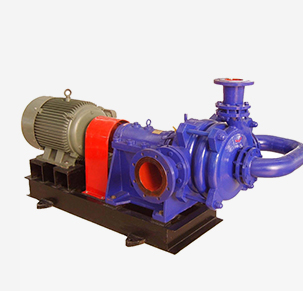Swahili
- Afrikaans
- Albanian
- Amharic
- Arabic
- Armenian
- Azerbaijani
- Basque
- Belarusian
- Bengali
- Bosnian
- Bulgarian
- Catalan
- Cebuano
- Corsican
- Croatian
- Czech
- Danish
- Dutch
- English
- Esperanto
- Estonian
- Finnish
- French
- Frisian
- Galician
- Georgian
- German
- Greek
- Gujarati
- Haitian Creole
- hausa
- hawaiian
- Hebrew
- Hindi
- Miao
- Hungarian
- Icelandic
- igbo
- Indonesian
- irish
- Italian
- Japanese
- Javanese
- Kannada
- kazakh
- Khmer
- Rwandese
- Korean
- Kurdish
- Kyrgyz
- Lao
- Latin
- Latvian
- Lithuanian
- Luxembourgish
- Macedonian
- Malgashi
- Malay
- Malayalam
- Maltese
- Maori
- Marathi
- Mongolian
- Myanmar
- Nepali
- Norwegian
- Norwegian
- Occitan
- Pashto
- Persian
- Polish
- Portuguese
- Punjabi
- Romanian
- Russian
- Samoan
- Scottish Gaelic
- Serbian
- Sesotho
- Shona
- Sindhi
- Sinhala
- Slovak
- Slovenian
- Somali
- Spanish
- Sundanese
- Swahili
- Swedish
- Tagalog
- Tajik
- Tamil
- Tatar
- Telugu
- Thai
- Turkish
- Turkmen
- Ukrainian
- Urdu
- Uighur
- Uzbek
- Vietnamese
- Welsh
- Bantu
- Yiddish
- Yoruba
- Zulu
Telephone: +86 13120555503
Email: frank@cypump.com
Desemba . 10, 2024 08:10 Back to list
Efficient Lift Pump Solutions for Optimizing Septic System Wastewater Management
Efficient Solutions for Wastewater Management The Role of Lift Pumps in Septic Systems
Wastewater management is an essential aspect of environmental sustainability and public health. One of the critical components of an efficient septic system is the lift pump, which plays a vital role in transporting wastewater to treatment areas. This article explores the function, benefits, and innovations in lift pumps, emphasizing their significance in enhancing the efficiency of septic systems.
Understanding Lift Pumps
Lift pumps are designed to move wastewater from lower elevations to higher ones, overcoming gravity. In septic systems, they are particularly useful in situations where the natural flow of wastewater is impeded due to the topography of the land. For example, if a home is located in a low-lying area where gravity drainage is not possible, a lift pump will ensure that wastewater is efficiently directed to the septic tank or treatment area.
The Importance of Lift Pumps
The primary function of a lift pump is to maintain the proper flow of wastewater through the septic system, which is crucial for effective treatment. If wastewater is not adequately transported, it can lead to system failures, backups, and costly repairs. Moreover, untreated wastewater can pose significant health risks and environmental hazards, contaminating groundwater and surrounding ecosystems.
Additionally, lift pumps contribute to the overall efficiency of the septic system. By ensuring that wastewater reaches treatment areas promptly, they reduce the likelihood of clogs and backups in the system, leading to more effective treatment and minimizing the need for frequent maintenance.
Benefits of Modern Lift Pumps
Modern lift pumps have evolved significantly, offering several advantages that enhance their functionality and efficiency
lift pump for septic system efficient solutions for wastewater ...

1. Energy Efficiency Today’s lift pumps are designed with energy efficiency in mind. With innovations such as variable speed drives, these pumps can adjust their operation based on the volume of wastewater, reducing energy consumption and operating costs.
2. Durability and Reliability Advances in materials and engineering have resulted in more durable and reliable lift pumps. They are constructed to withstand harsh conditions and minimize wear and tear, ensuring they can operate effectively over long periods without frequent replacements.
3. Smart Technology Integration Many modern lift pumps come equipped with smart technology that allows for remote monitoring and control. Homeowners can receive notifications about pump status, performance metrics, and even maintenance reminders, enabling proactive management of their septic systems.
4. Quiet Operation Noise pollution can be a concern with traditional lift pumps. However, newer models are designed to operate more quietly, ensuring that septic systems remain unobtrusive and do not disrupt the living environment.
Innovations in Lift Pump Design
Recent innovations in lift pump technology are paving the way for even more efficient solutions in wastewater management. For instance, some companies are developing pumps with advanced filtration systems that can separate solids from liquids more effectively, preventing clogs and enhancing overall system performance. Others are focusing on renewable energy solutions, like solar-powered lift pumps, which can significantly reduce the carbon footprint of wastewater management systems.
Furthermore, the integration of IoT (Internet of Things) technology in lift pumps allows for real-time data collection and analysis. This can help homeowners and service providers to track performance trends, prevent potential issues before they escalate, and optimize pump operation to align with actual usage patterns.
Conclusion
Lift pumps are indispensable components of septic systems, ensuring efficient wastewater transport and treatment. With ongoing advancements in technology and design, modern lift pumps offer solutions that enhance energy efficiency, durability, and user control. As we continue to seek sustainable ways to manage wastewater, the role of lift pumps will remain crucial in promoting environmental health and compliance with regulatory standards. Proper selection, maintenance, and operation of these pumps are vital for achieving optimal performance in septic systems, contributing to a cleaner and healthier environment for all.
-
Heavy-Duty Mining Sludge Pumps - Wear-Resistant Slurry Handling
NewsAug.02,2025
-
Horizontal Split Case Pump with GPT-4 Turbo | High Efficiency
NewsAug.01,2025
-
ISG Series Pipeline Pump - Chi Yuan Pumps | High Efficiency, Durable Design
NewsAug.01,2025
-
Advanced Flue Gas Desulfurization Pump with GPT-4 Turbo | Durable & Efficient
NewsJul.31,2025
-
ISG Series Vertical Pipeline Pump - Chi Yuan Pumps | Advanced Hydraulic Design&Durable Construction
NewsJul.31,2025
-
ISG Series Vertical Pipeline Pump - Chi Yuan Pumps | Energy Efficient & Low Noise
NewsJul.31,2025










